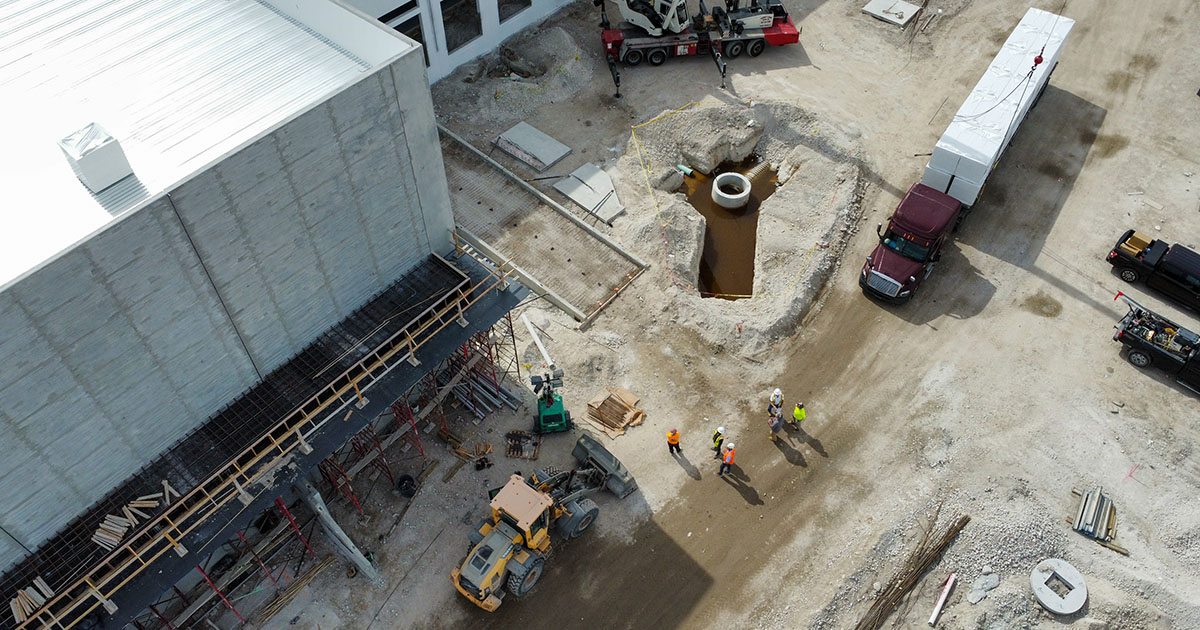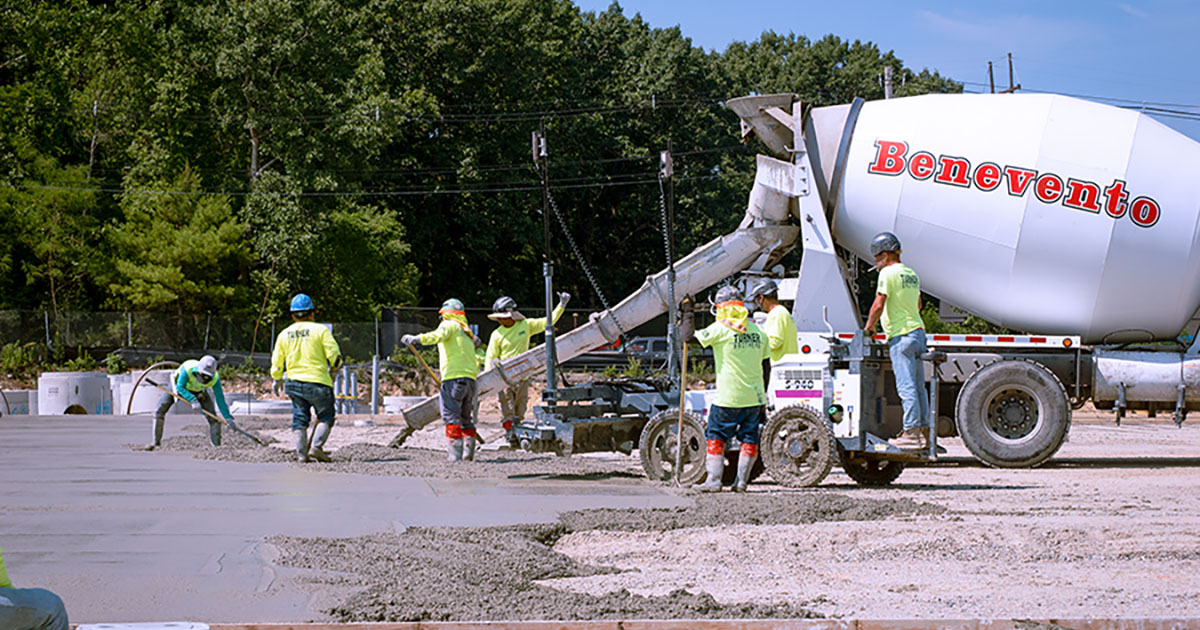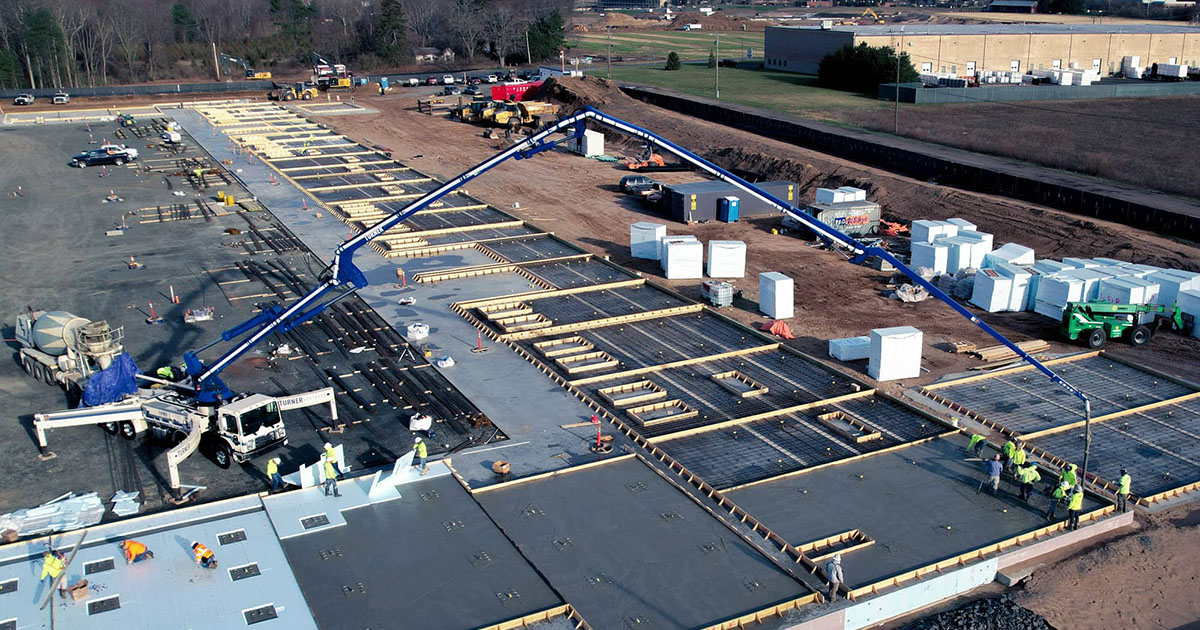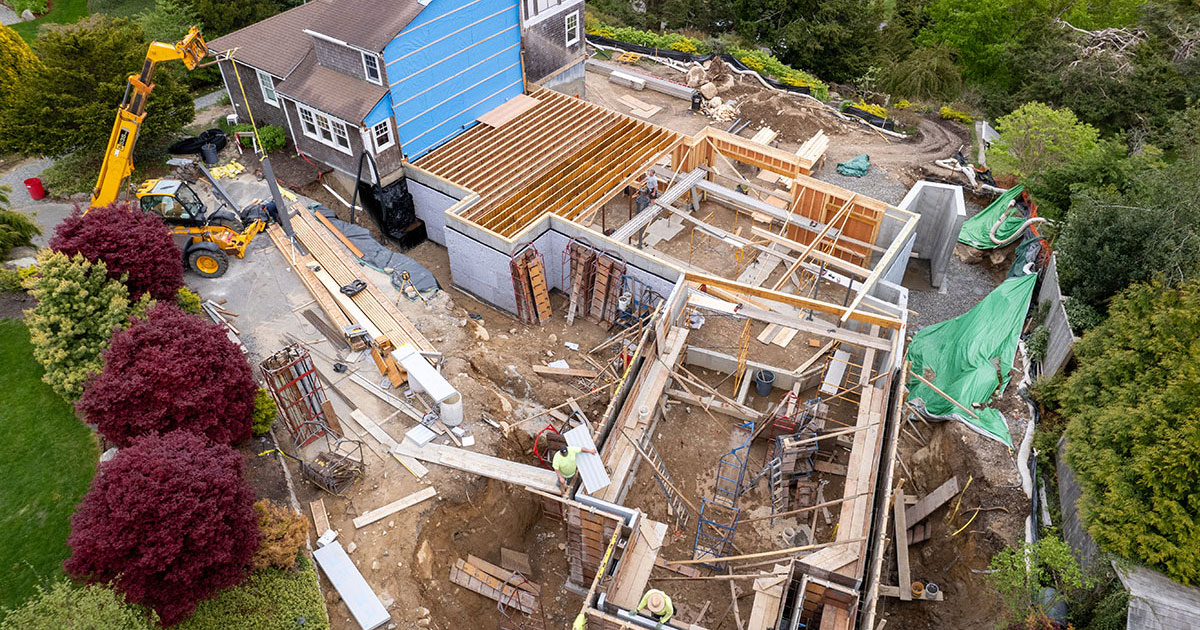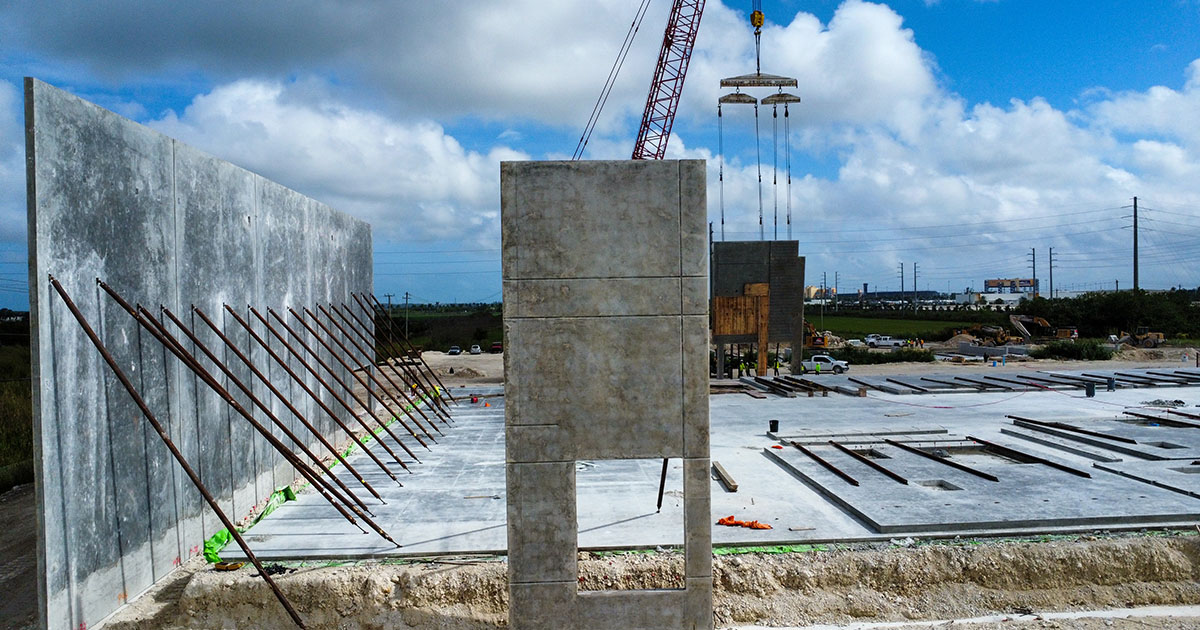
Building Effective Websites for Construction Companies
For building & construction companies, a well-designed website is essential to growing your business and attracting new clients. A website serves as the digital storefront for your company, showcasing your expertise, past projects, and the quality of your work. In an industry where trust and reputation are critical, having a professional website helps potential clients learn about your services, view your portfolio, and easily contact you for quotes or consultations.
In this article, we’ll explore the key features and strategies needed to build an effective website for construction companies that drives leads and strengthens your online presence.
1. A Professional, User-Friendly Design
The design of your website is the first thing potential clients will notice, and first impressions matter. A clean, professional, and user-friendly design communicates trustworthiness and reliability, which are essential traits in the construction industry.
Key elements of good web design include:
- Simple navigation: Make it easy for visitors to find what they’re looking for, whether it’s your services, portfolio, or contact information.
- Clear calls-to-action (CTAs): Include buttons or links that guide visitors to take specific actions, such as “Request a Quote” or “Contact Us.”
- Mobile responsiveness: Ensure your website functions seamlessly on mobile devices, as many users will visit your site from their smartphones.
A well-designed website makes it easier for visitors to engage with your business, improving your chances of turning them into clients.
2. Showcasing Your Portfolio and Projects
For construction companies, a portfolio is one of the most critical parts of the website. Potential clients want to see examples of your past work to understand the quality of your craftsmanship and the types of projects you specialize in.
When building your portfolio, include:
- High-quality images: Use professional photos of completed projects to highlight key features, design elements, and workmanship.
- Project descriptions: Provide details about the scope of the project, challenges you faced, and the solutions you provided.
- Diverse project types: Showcase a range of work, from residential to commercial projects, so clients can see the breadth of your expertise.
A well-organized portfolio builds credibility and gives clients confidence in your ability to deliver high-quality results.
3. Service Pages with Clear Descriptions
Your website should clearly communicate the services you offer. Each service should have its own dedicated page that outlines what’s included and what potential clients can expect. This helps visitors understand whether your company is a good fit for their project needs.
Service pages should include:
- Detailed descriptions: Explain the services you offer, such as residential construction, commercial builds, remodeling, or specialized services like roofing or plumbing.
- Client benefits: Highlight the advantages of working with your company, such as expertise, fast project completion, or high-quality materials.
- Calls-to-action: Encourage visitors to take the next step by contacting you for more information or requesting a quote.
Clear, informative service pages help potential clients quickly find the information they need and guide them through the decision-making process.
4. Optimizing for Local SEO
For construction companies, attracting local clients is essential. Search Engine Optimization (SEO) helps your website appear higher in search engine results, especially for local searches like “construction companies near me” or “general contractor in [city].”
To optimize your website for local SEO:
- Use location-specific keywords: Include the cities or regions you serve in your page titles, meta descriptions, and content.
- Claim and optimize your Google My Business profile: Make sure your business appears in local map searches by providing accurate business information, photos, and services.
- Add location pages: If you serve multiple areas, create dedicated location pages that focus on each region and the services you provide there.
Improving your local SEO ensures that your website gets seen by potential clients in your area, driving more traffic and leads.
5. Easy Contact and Quote Request Forms
One of the primary goals of your website is to make it easy for potential clients to contact you. Contact forms and quote request forms should be simple and prominently displayed on your site, encouraging visitors to reach out.
Effective contact forms should:
- Ask for essential information: Keep the form short by asking only for the necessary details, such as name, phone number, email, and a brief description of the project.
- Include a clear CTA: Use clear and concise text like “Get a Free Quote” or “Contact Us Today” to encourage action.
- Place forms on multiple pages: Include contact forms on key pages, such as service pages, the homepage, and the contact page, to capture leads wherever they may land.
By making it easy for potential clients to get in touch, you increase the likelihood of generating leads and inquiries from your website.
6. Client Testimonials and Reviews
Client testimonials and reviews add a layer of trust and credibility to your website. Positive feedback from past clients can influence new visitors and reassure them of your company’s reliability and quality.
To make the most of testimonials:
- Feature them prominently: Display testimonials on your homepage, service pages, and a dedicated “Reviews” page.
- Use real names and photos: Include the client’s name, location, and photo (with their permission) to make the testimonials more personal and trustworthy.
- Highlight specific outcomes: Choose testimonials that mention specific benefits, such as timely project completion, excellent communication, or superior craftsmanship.
Having a strong collection of client testimonials enhances your reputation and helps convert visitors into clients.
7. Integrating Video Content
Video is an incredibly effective tool for construction companies to showcase their expertise and projects. Integrating video content into your website can boost engagement and provide potential clients with a more dynamic look at your work.
Types of video content to include:
- Project walkthroughs: Take visitors through completed projects, highlighting key features and explaining the process from start to finish.
- Client testimonials: Record video interviews with satisfied clients who can speak to their experience with your company.
- Behind-the-scenes footage: Show your team in action, whether it’s during the construction phase or while solving challenges on-site.
Video content adds depth to your website and can increase the time visitors spend learning about your services.
8. Regularly Updated Blog and Resources
A blog can significantly enhance your website’s SEO performance and provide valuable information to your audience. By regularly publishing content, you establish your business as an authority in the construction industry and keep your website active.
Blog topics for construction companies might include:
- Home renovation tips: Offer advice on popular renovation trends, energy-efficient building practices, or cost-saving strategies.
- Project case studies: Write in-depth articles that walk readers through the process of a specific project, from design to completion.
- Industry insights: Share news on construction regulations, material innovations, or sustainability in construction.
A regularly updated blog can attract more visitors to your site and help convert them into leads.
9. Fast Load Times and Performance Optimization
Website speed is crucial for user experience and SEO. Slow-loading websites can frustrate visitors and lead to higher bounce rates, where users leave your site without engaging. Construction marketing professionals ensure your website loads quickly and runs smoothly.
To improve site performance:
- Optimize images: Compress large image files without sacrificing quality to speed up load times.
- Use a reliable hosting service: Ensure your website is hosted on a platform that offers fast performance and minimal downtime.
- Enable browser caching: Allow certain elements of your website to load faster by saving data in visitors’ browsers.
A fast website ensures a better experience for users and improves your SEO rankings.
10. Security Features and Trust Signals
Ensuring your website is secure builds trust with potential clients. Implementing security features like SSL certificates (which provide HTTPS encryption) signals to visitors that their personal information is safe.
Other trust signals include:
- Certifications and affiliations: Display any industry certifications, licenses, or memberships in professional organizations.
- Insurance details: Mention that your company is fully licensed and insured to give clients peace of mind.
- Privacy policy: Include a privacy policy to let users know how their data will be used and protected.
These trust signals reinforce your professionalism and reliability, making potential clients feel more confident in choosing your services.
11. Incorporate Interactive Elements for Visitor Engagement
Adding interactive features to your website can engage visitors and create a more memorable experience. For construction companies, interactive elements can showcase your services dynamically and make your site stand out.
Ideas for Interactive Features:
- Cost Estimators: Include a basic cost estimation tool where potential clients can enter project details to receive an approximate budget range. This can help set expectations and prompt further inquiries.
- Before-and-After Sliders: Allow users to slide between before-and-after photos of completed projects to visually demonstrate your transformations.
- Project Timelines: Display typical timelines for different types of projects or an interactive timeline for a featured project to showcase your efficiency and planning process.
Interactive elements can improve user engagement and make your website a more effective lead generation tool.
12. Include Clear Service Area Information
Many clients want to know if you can serve their specific area, especially in the construction industry where travel and logistics are key factors. Adding clear information about your service areas can improve local SEO and help visitors quickly determine if you’re the right fit.
How to Highlight Service Areas:
- Service Area Map: Include an interactive map showing the regions or cities you serve.
- Location-Based Pages: Create specific pages for each major service area, optimizing each for local SEO to boost your visibility in those regions.
- Service Descriptions: Clearly mention service areas on your main service and contact pages, making it easy for visitors to find.
By prominently displaying your service areas, you make it easier for local clients to connect with you.
13. Highlight Unique Selling Points (USPs) and Core Values
Your website should communicate what sets your construction business apart from competitors. This could be a unique process, superior materials, or an emphasis on client satisfaction. Clearly defining these Unique Selling Points (USPs) and core values can help potential clients understand why they should choose you.
Examples of USPs to Highlight:
- Sustainability Practices: If your company uses eco-friendly materials or follows sustainable building practices, highlight this to attract environmentally conscious clients.
- Safety Standards: Showcase your commitment to safety, including any certifications or industry awards related to jobsite safety.
- Experienced Team: Emphasize the expertise and years of experience of your team members to instill confidence in potential clients.
Identifying and promoting your USPs helps differentiate your company and appeals to clients who value those specific qualities.
14. Case Studies and Detailed Project Breakdowns
In addition to a general portfolio, consider adding in-depth case studies for specific projects. Case studies can provide a narrative that goes beyond basic project photos, giving potential clients a better sense of your capabilities and approach.
What to Include in Case Studies:
- Project Goals: Briefly describe the client’s goals and what they wanted to achieve.
- Challenges: Outline any challenges encountered during the project and how your team addressed them.
- Solutions and Results: Explain the solutions you implemented and the final results, focusing on how you met or exceeded client expectations.
Case studies are a powerful tool for showcasing your expertise, problem-solving skills, and dedication to client satisfaction.
15. Include a Frequently Asked Questions (FAQ) Section
An FAQ section can address common questions and concerns, helping potential clients quickly find the information they need. This can also reduce the number of inquiries related to general questions, allowing your team to focus on qualified leads.
Topics to Cover in FAQs:
- Project Timelines: Explain typical timelines for various types of projects.
- Pricing and Estimates: Describe how your company provides estimates and what factors influence project costs.
- Licensing and Insurance: Reassure clients by covering questions about your certifications, insurance, and other trust-building details.
- Warranty and Maintenance: If you offer warranties or maintenance on completed projects, include this information here.
An FAQ section not only provides value to visitors but also demonstrates that you anticipate and understand their concerns.
16. Add a Resource Section for Additional Value
Providing additional resources, such as guides, checklists, and planning tips, can help position your company as an expert in the industry. These resources add value for potential clients and improve SEO by keeping visitors on your site longer.
Types of Resources to Include:
- Project Planning Guides: Offer guides on planning home renovations, budgeting, or what to expect during a construction project.
- Maintenance Checklists: Provide seasonal maintenance checklists to help clients care for their property after a project.
- Construction Terminology Glossary: Include a glossary to help clients understand industry terms, which can make them feel more confident and informed when working with you.
A resource section builds credibility and encourages clients to return to your site for valuable information.
17. Highlight Safety and Compliance Standards
Safety and compliance are top priorities in the construction industry. Showcasing your commitment to these standards can reassure potential clients that you prioritize safe practices and adhere to regulations.
How to Showcase Safety and Compliance:
- Certifications and Training: Mention any OSHA certifications, safety training programs, or other relevant industry credentials.
- Safety Protocols: Briefly outline safety measures taken on each project, such as regular safety meetings, protective gear, and site inspections.
- Compliance with Local Codes: Emphasize your knowledge of and compliance with local building codes and regulations.
Communicating a strong safety and compliance ethic can increase client confidence, especially for large or complex projects.
Building an Effective Website for Construction Companies
A well-designed website is essential for building and construction companies looking to grow their business and attract new clients. By focusing on user-friendly design, showcasing your portfolio, optimizing for local SEO, and integrating video content, your website can become a powerful marketing tool that drives leads and enhances your brand. With the right features and strategies, you can create a website that effectively communicates your expertise, engages visitors, and turns them into long-term clients.



